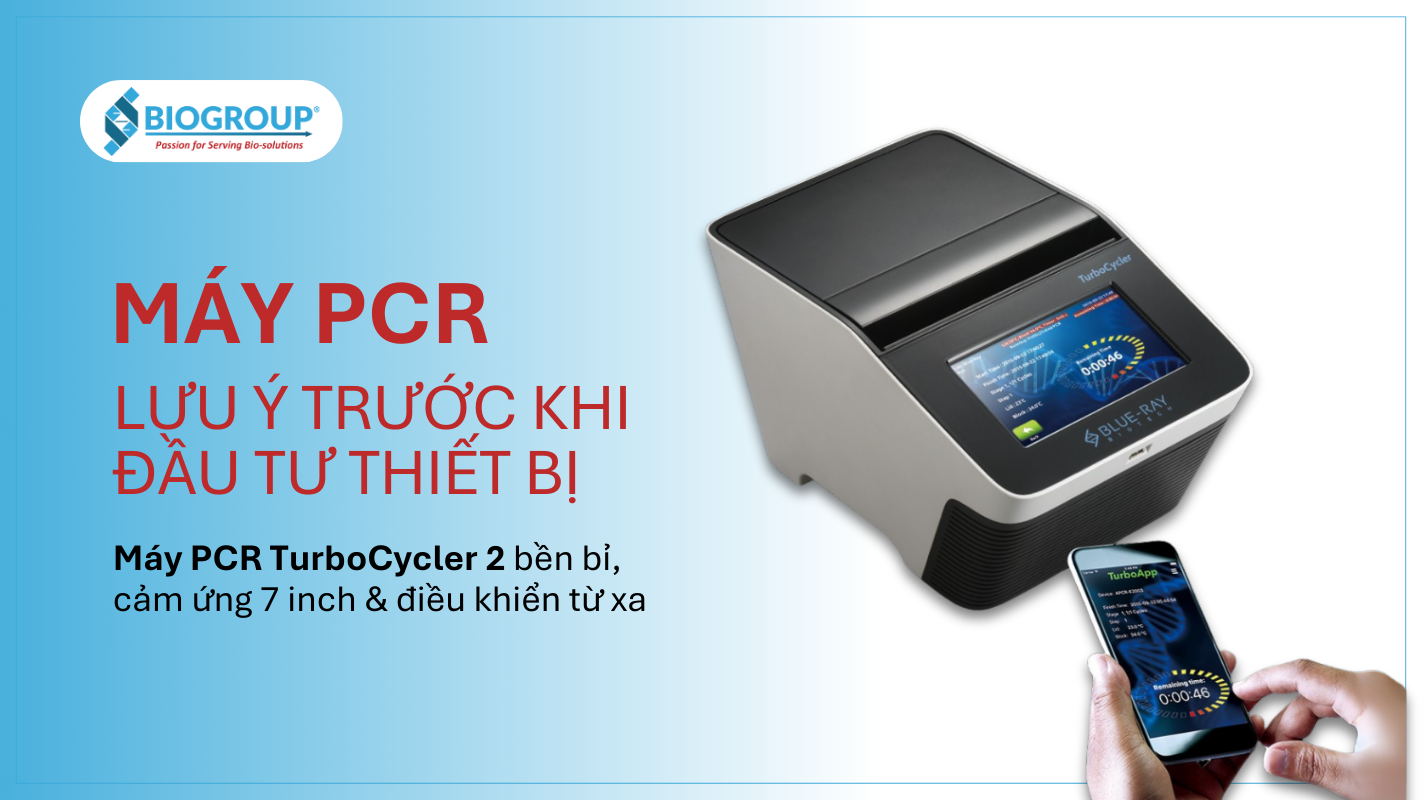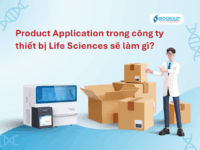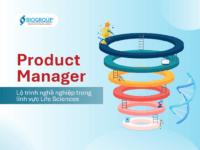PCR machines & what you need to know before investing in equipment
The first commercial PCR (Polymerase Chain Reaction) machine was developed just a few years after Kary Mullis won the Nobel Prize in 1983 for his invention of the polymerase chain reaction. The PCR machine revolutionized the process by automating what was once a labor-intensive procedure for scientists. Although commonly referred to as a machine for nucleic acid amplification in samples, the controlled heating and cooling in the thermal cycler PCR machine can be used in various applications, such as DNA sequencing, cloning, gene expression studies, etc. When choosing a PCR machine for the laboratory, it is essential to carefully review the device’s specifications and identify the actual applications that you plan to use. TurboCycler 2 PCR machine – durable, with 7-inch touchscreen & remote control

TurboCycler 2 PCR machine – durable, with 7-inch touchscreen & remote control
Contents
ToggleLaboratory PCR machine functions
PCR machines are essential equipment used daily in molecular biology labs. When purchasing a new PCR machine, scientists should prioritize stability and durability. According to Jeffrey Lai, Product Supervisor at Blue-ray Biotech: “Today’s PCR machines must serve as workhorses in the molecular biology lab, not just fancy gadgets.” Therefore, aside from determining the practical application, laboratories should also focus on the machine’s longevity and reliability when selecting. PCR machines are designed to cycle a sample through a range of temperatures within a specified time frame. Users can program the device to switch between multiple incubation temperatures, each maintained for a set period, and then repeat this cycle for the desired number of cycles. As Jeffrey Lai shared, the temperature and time can be complexly configured according to the scientist’s technical requirements. As scientists develop new methods, thermal cycler PCR machines become increasingly involved in more research processes. For example, PCR machines can be used in CRISPR-Cas9 gene editing technology. Jeffrey Lai also points out that PCR machines can be used for reactions that require precise incubation temperatures, such as enzyme kinetics reactions. Emerging challenges in science and healthcare worldwide are driving scientists to expand the use of thermal cycler PCR machines. New scientific methods and advanced PCR machines are combined to offer new ways to utilize these devices.
Blue-ray Biotech PCR machine and continuous improvements
It has been 37 years since the first commercial PCR machine was introduced—an advanced technology. However, PCR machines still require continuous improvements to meet modern research needs better. Jeffrey Lai recounts: “The first major improvement was how they changed the incubation temperature. Early PCR machines included multiple components to create different temperatures. The sample was moved from one component to another to create the cycling effect. In the 1980s, using compressors and heating elements led to PCR machines that could heat and cool the sample at the same location. Later, thermal cyclers using Peltier technology replaced compressors and heating elements for incubation, reducing the size and power consumption of PCR machines.” Currently, PCR machine manufacturers, including Blue-ray Biotech, continue using Peltier technology. However, PCR machines are still being further improved. Some improvements include faster heating and cooling speeds. The rate of temperature increase can reach up to 10°C/second, and some models can even reach up to 20°C/second by using specialized incubation blocks and reaction tubes. This significantly reduces the time it takes to complete PCR experiments. Modern thermal cycler PCR machines also offer more precise and consistent temperatures. Temperature control accuracy can be as small as ±0.1°C, and the temperature change on incubation blocks can be as small as ±0.2°C. This ensures that experiments are conducted under well-controlled conditions, reducing the likelihood of errors. However, maximizing the fast heating and cooling capabilities of PCR machines is not always necessary. In some applications, slow temperature changes are the most important. For example, with CRISPR-Cas9, results must be confirmed after gene editing. Some detection methods require incubation temperatures to decrease very slowly, from 85°C to 25°C, with a cooling rate of ±0.1°C/second. Scientists can even control modern PCR machines remotely via a smartphone. This feature can help scientists decide where to place the PCR machine or make it easier to operate the PCR machine around the clock. Learn more about Blue-ray Biotech thermal cycler PCR machine
Applications of PCR machines in virus detection and medical diagnosis
The benefits of PCR machines continue to grow. Scientists used real-time PCR machines to measure bacterial growth in cultures. According to their reports, real-time data collection “significantly simplifies and increases cost-effectiveness in generating bacterial growth curves” and “can also monitor bacterial susceptibility to antibiotics, opening up another important application of this PCR technique.” Changing scientific challenges are also expanding the use of thermal cycler PCR machines. One example is the detection of SARS-CoV-2, where PCR machines are used. A group of scientists from the University of California, San Francisco (UCSF) and the UCSF-Abbott Virus Detection and Diagnosis Center demonstrated that the type of PCR machine used in SARS-CoV-2 virus detection tests impacts the detection range. Other scientists have also explored the use of PCR machines to control this virus. One interesting example is scientists in Mexico using the miniPCR thermal cycler and a microplate reader in a SARS-CoV-2 testing system. These scientists reported that this simple method allows for detecting and amplifying SARS-CoV-2 nucleic acids from approximately ~625 to 2×105 DNA copies. The accuracy and simplicity of this diagnostic strategy offer a practical and cost-efficient alternative for testing the COVID-19 pandemic, especially in underdeveloped areas where RT-qPCR technology deployment may be limited. The portability, ease of use, and high reproducibility of the miniPCR machine have made it a reliable solution for SARS-CoV-2 detection efforts at COVID-19 control and treatment centers. After more than 30 years, PCR machines continue to be a cornerstone in molecular biology labs, from research to diagnostic applications in various fields. As scientists expand the use of PCR machines in disease control, PCR machines prove to be indispensable in projects aimed at improving health and even saving lives. A PCR machine is an essential starting point for operating a practical and professional laboratory. If you need support with laboratory equipment solutions, please get in touch with Biogroup Vietnam for free consultation. Contact for detailed PCR machine advice and other lab solutions:
- Website: https://biogroupvietnam.com/public/lien-he
- Hotline: +84 963 621 421
- Email: info@biogroupvietnam.vn
Categories
- Blog (55)
- Training & Webinar (28)
- Virtual Booth (1)
- New Products & Technologies (45)
- News (41)
- Recruitment (11)




